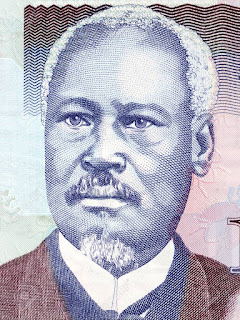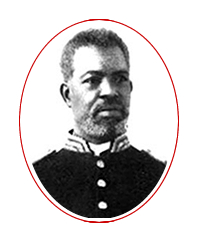The Hidden Face of Gary Conille and His Role in Haitian Politics
The Hidden Face of Gary Conille and His Role in Haitian Politics
Introduction
Gary Conille, a seasoned academic and development expert, currently serves as the Prime
Minister of Haiti, a role he assumed amid significant controversy and political turbulence.
His reappointment in May 2024 by the Transitional Presidential Council comes as Haiti
grapples with severe socio-political instability and gang violence. Conille’s career is marked
by his significant contributions to both national and international platforms, yet it is also
marred by controversies that question his political integrity and effectiveness. This article
investigates into the persona of Gary Conille, exploring his early life, career trajectory,
previous tenure as Prime Minister, international engagements, and the controversies
surrounding his political journey.
Early Life and Career
Gary Conille was born on February 26, 1966, into a politically active family. His father, Dr.
Serge Conille, served as the Minister of Sports and Youth under the Duvalier government.
Conille’s early exposure to politics and governance likely influenced his career path. He
pursued higher education rigorously, graduating from Collège Canado-Haïtien and the
Faculty of Medicine and Pharmacy at the University of Haiti. His academic journey further
extended to the University of North Carolina at Chapel Hill, where he earned an MA in
Political and Health Administration as a Fulbright Scholar. Conille’s medical expertise was
solidified with a Ph.D. in Medicine and a specialty in Gynecology and Obstetrics.
Conille's early career was deeply rooted in public health. He played a pivotal role in
developing primary care systems for impoverished areas in Haiti and conducted impact
assessments for community health projects. His foray into international work began with the
United Nations Population Fund (UNFPA) and later with Population Services International
(PSI), focusing on reproductive health.
First Tenure as Prime Minister
Conille’s first term as Prime Minister began in October 2011, under President Michel
Martelly. His nomination came after two previous candidates were rejected by the Senate,
highlighting the political instability of the time. Despite initial optimism, Conille’s tenure was
fraught with challenges. He faced significant opposition regarding his residency status, as
critics argued he did not meet the constitutional requirement of residing in Haiti for five
consecutive years prior to his nomination. President Martelly defended Conille, stating his
UN work exempted him from this requirement. Conille's tenure saw some progress in Haiti’s recovery from the 2010 earthquake, particularly
in coordinating international aid. However, his term was overshadowed by internal conflicts
within the government, notably disagreements with ministers and the President over issues
such as dual nationality investigations. These tensions culminated in his resignation in
February 2012, just a few months into his term, demonstrating the fragile nature of Haiti’s
political landscape.
Return to Office
In May 2024, Conille was reappointed as Prime Minister by the Transitional Presidential
Council, marking his return to a deeply troubled political scene. His selection was part of an
effort to restore stability and counter the pervasive gang violence that has plagued the
country. The decision, however, was met with mixed reactions, reflecting both hope for his
experienced leadership and skepticism about his ability to navigate Haiti's complex political
environment.
Conille’s goals for this term focus on addressing the immediate security concerns posed by
gangs, restoring governmental functionality, and preparing for long-overdue elections. The
urgency of these tasks is underscored by the dire humanitarian situation, with thousands
displaced and infrastructure in ruins.
International Involvement
Conille’s international career is notable for its breadth and impact. He held various positions
within the United Nations, including Chief Technical Advisor for UNFPA in Africa and team
leader of the MDG Unit at the UNDP. His role in the wake of Haiti's 2010 earthquake as head
of the office of the UN Special Envoy for Haiti, former President Bill Clinton, showcased his
ability to coordinate large-scale humanitarian efforts. Conille was instrumental in developing
strategic plans for Haiti’s reconstruction and managing international aid efforts, which
highlighted his expertise and commitment to development.
Post his first tenure as Prime Minister, Conille continued his international work, notably as a
senior advisor to Liberian President Ellen Johnson Sirleaf and later as UNICEF’s regional
director for Latin America and the Caribbean. These roles solidified his reputation as a
skilled administrator and advocate for development.
Controversies and Allegations
Conille’s career has not been without controversy. His initial selection as Prime Minister was
challenged due to questions about his residency status. Conille's reputation suffered
significant blows due to his entanglement in corruption charges involving the Conseil
National Électoral (CNE). Vocal in his denials, he maintained his innocence amidst mounting
evidence, leaving many to wonder if he remains a good choice or a corrupted agent.
Moreover, questions persisted regarding Conille's residence status, creating ambiguity around
his eligibility for high office. Critics argued that his extended stays abroad compromised his
claim to genuine representation of the Haitian people. Finally, suspicions lingered over
Perceived alignments with American agendas, particularly during his stewardship of the
Ministry of Planning and External Cooperation. Opponents warned of possible threats to
Haitian sovereignty, sparking heated debates over the extent of foreign interference in
domestic affairs.
Socio-Political Context
Haiti’s socio-political landscape is characterized by chronic instability, economic hardship,
and violence. The country’s history of dictatorship, corruption, and natural disasters has
created a complex environment where governance is exceptionally challenging. Conille’s
story is emblematic of the broader struggles within Haitian politics—where capable leaders
are often undermined by systemic issues and entrenched interests.
The current climate of gang violence and humanitarian crises underscores the urgency of
effective leadership. Conille’s ability to navigate these challenges will be critical in
determining Haiti’s path forward.
Conclusion
Gary Conille’s impact on Haitian politics is both significant and contentious. His extensive
experience in development and humanitarian work positions him as the technocrat leader the
USA thinks can be capable of steering Haiti through its current crises. However, the
controversies surrounding his political career and the ongoing instability in Haiti raise
questions about his ability to effect lasting change. Conille’s tenure as Prime Minister will
undoubtedly shape the future of Haitian politics, with implications for governance, security,
and development.
Appendix: Key Events in the Life of Gary Conille
- 1966: Born in Haiti
- 1980s: Attended Collège Canado-Haïtien and the University of Haiti
- 1990s: Earned MA in Political and Health Administration from the University of
North Carolina at Chapel Hill; specialized in Gynecology and Obstetrics
- 1994-1998: Developed primary care systems in poor areas of Haiti
- 1999-2004: Worked with UNFPA and PSI in Haiti
- 2004-2011: Held various positions within the UN, focusing on health and
development in Africa
- 2010: Coordinated UN humanitarian efforts in Haiti post-earthquake
- 2011-2012: Served as Prime Minister of Haiti
- 2012-2023: Continued international work, including roles with UNDP and UNICEF
- 2024: Reappointed as Prime Minister of Haiti amidst ongoing political and
humanitarian crises
Il est possible de consulter ces articles :
- https://Tchala Examens officiels du Baccalauréat Unique 2024 (NS4)
- Tu as tort TAFA, on ne peut pas être humain et croyant
- La stratégie des politiciens haïtiens pour assassiner la jeunesse
- Découvrez la réalisation des chefs d'États à travers ce lien: Le Chef d'Etat en plusieurs points
Klike sou lyen sa a, si w vle pibliye sou haititchala.com : InfoPUBLICATION

.png)





Commentaires
Publier un commentaire